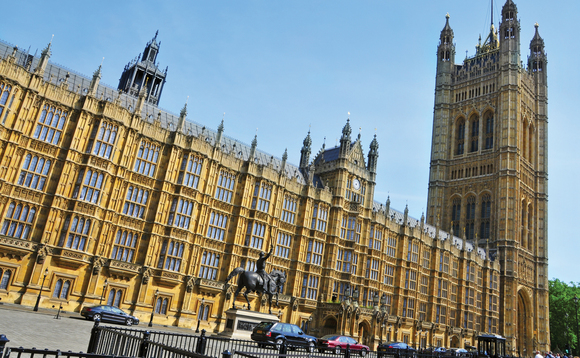UK MPs have rejected amendments put forward by members of the House of Lords that would have retained the state pension triple lock following "fiery" exchanges in the House of Commons.
The state pension triple lock will now be suspended for a year as planned to prevent a 8.3% increase based on ‘artificially high' earnings growth brought about by the pandemic.
The double lock arrangement will see the state pension increase in line with Consumer Prices Index (CPI) inflation of 3.1%. However, concerns were raised about rising inflation hitting pensioners' standards of living.
An amendment put forward by Baroness Ros Altmann, the former pensions minister under the coalition government, had aimed to maintain the triple lock 'earnings link' by allowing the government to use an ‘underlying' earnings growth figure which stripped out the effects of the pandemic rather than the ‘headline' 8.3% figure produced by the Office for National Statistics.
Peers backed the motion earlier this month but it was overturned in the House of Commons last night (15 November).
Helen Morrissey, senior pensions and retirement analyst at Hargreaves Lansdown said: "The House of Lords' proposed changes to keep the state pension triple lock were rejected in the Commons but not without a lot of drama along the way.
"There were fiery exchanges between the pension minister Guy Opperman and a number of MPs including the head of the Work and Pensions Committee Stephen Timms, who argued that pensioner poverty is already on the rise and that even a one-year break in the earnings link risks long-term damage.
"While an 8.3% increase in the state pension looks generous in the wake of earnings figures distorted by the pandemic it's also fair to say the alternative of 3.1% offers little comfort in the face of rapidly rising inflation. The suggestion that an earnings figure could be used that strips out the distorting impact of the pandemic was rejected by the pension minister who said it was difficult to find a figure that was sufficiently robust."
She added: "This triple lock has been in place for a decade and has played a role in boosting the state pension, but the current situation has exposed its flaws. If it can be frozen and tweaked now, then it can be done so in the future.
"The time has come to take a wider ranging look at state pension and the triple lock's role within it."
'Out in the cold'
Aegon pensions director Steven Cameron said pensioners would lose out despite Altmann's "valiant efforts" to protect the triple lock.
He said: "Despite valiant efforts from Baroness Ros Altmann and the support of the House of Lords, state pensioners will be disappointed that the government is sticking with its decision to downgrade the state pension triple lock to a double lock for next April's increase. With the earnings component stripped out, state pensions will increase by 3.1% next April even though the latest inflation figures to be published this Wednesday are expected to surge to 4% or above, with further increases likely over the winter.
"Most would agree maintaining the state pension triple lock in its unadjusted form would have failed the test of intergenerational fairness, granting pensioners a ‘pandemic windfall' increase of over 8% arising from distortions in earnings during furlough.
"The multi-billion pound cost of this would have been met from the National Insurance of today's workers. But taking away the earnings component entirely and using an inflation figure which is already past it's sell by date is a double whammy to those for whom the state pension is their main or only income in retirement."
He added: "The House of Lords had asked the government to think again, retaining the earnings growth figure but with the distortions from furlough stripped out.
"Taking this approach, or some form of averaging across two or more years, would have allowed the government to maintain the spirit of its triple lock manifesto commitment. But as the prices of food and fuel rise over the winter, many pensioners will now be feeling left out in the cold."










